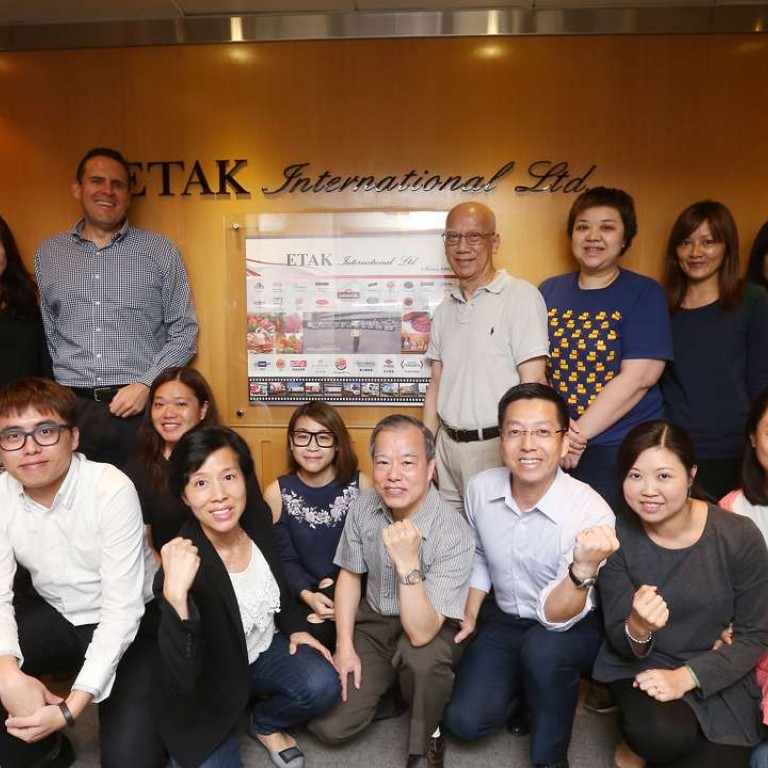
Having climbed up Hong Kong’s food chain, this business is ready to do some good
Food export company Etak International, which grew from a small company in 1969 to a major distributor, will donate HK$150,000 to Operation Santa Claus
Hong Kong-based food import company Etak International has a charitable streak – but they don’t like to shout about it.
The business, which has its premises on Hennessy Road, Wan Chai, has been contributing to the South China Morning Post’s annual charity fundraiser Operation Santa Claus for five years. This year it will donate HK$150,000 to the campaign, which helps support 23 charities in Hong Kong.
Founded by American George Mendenhall in 1969, Etak (an anagram of his wife’s name Kate) has grown from a tiny company to major local food distributor offering more than 2,000 products, including meats, seafood, dairy, baked goods, confection, juices and fruit and vegetables.
COO John Hill said he regarded Operation Santa Claus as an important cause because of its impact at a grassroots level.
“Young and old and poor and less educated – there is a broad reach,” he said. “That is very attractive for us. We recognise the importance of doing something across the board for charities here.”
Etak distributes to all the major supermarkets in Hong Kong, as well as hotels, restaurants, clubs, caterers and other food service operators. It has more than 1,000 customers.
Over the decades, as food imports and exports have grown in Hong Kong, the company has had to meet increasingly high standards for food safety, while governments globally work harder to limit food contamination.
“People want to try new dishes, but we are also facing increasing amounts of food quality control,” Hill said.
Hong Kong imports 95 per cent of its food, about 50 per cent of it from the mainland, because it has limited agricultural resources. The city is not included on the Global Food Security Index because it is not a country. China, however, was ranked 42nd out of 113 countries this year.
One of Etak’s first employees, Raymond Cheung, remembers when the company first introduced avocadoes to the local market.
“Back then there was no ParknShop,” he said. “We brought in things that people were not familiar with.”
Etak prides itself on retaining a largely local Hong Kong workforce. Cheung, who started his food industry career with a street food stall and is now one of the company’s directors, said it had been exciting to witness the company’s growth.
“So far I have been very happy here,” he said. “It started as just George and I. Now we have almost 100 employees. I have been through every stage and seen it go from strength to strength.”

